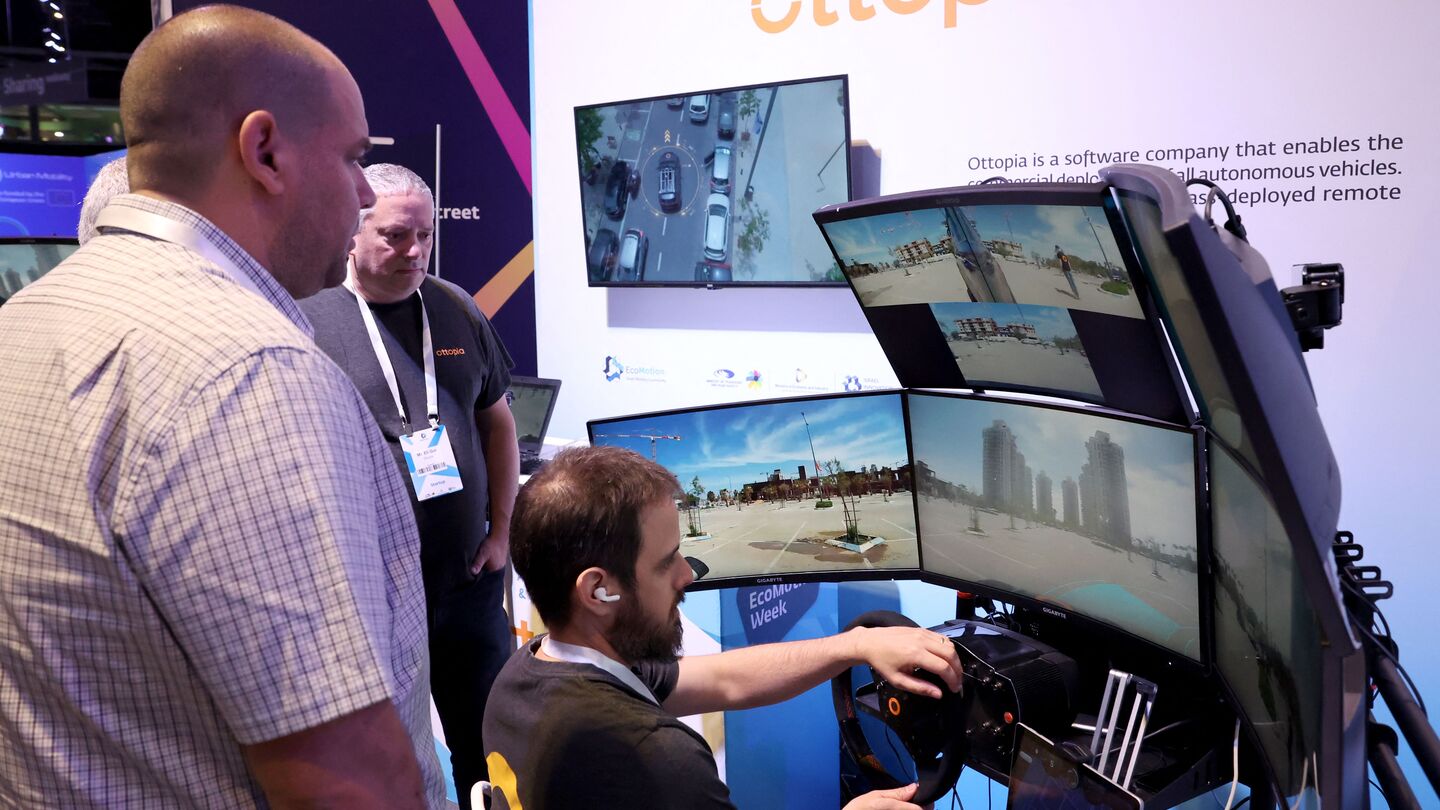Will Saudi Arabia’s esports era pay off?
Welcome back to Al-Monitor FutureVerse.
At the halfway point in 2025, the Middle East’s technology landscape has already witnessed big breakthroughs, bold AI investments and much more. Going into the second half of the year, there is no sign that tech headlines will slow down any time soon — including this week, with the world’s elite gamers currently chasing esports riches in Riyadh, Israeli startups riding a fresh funding wave and a new Gulf tech player making noise.
Thanks for reading.
Sam (@sam_wendel)

TOP STORY
People attend the international esports gamers Next World Forum in Riyadh, Sept. 7, 2022. — FAYEZ NURELDINE/AFP via Getty Images
Game on
The world’s top gamers began competing for a $70 million prize pool in Riyadh on July 7, as the Esports World Cup kicked off its second edition. For competitors, this represents a record prize pool for an esports tournament. For Saudi Arabia, however, the event is more than just a spectacle — it's the centerpiece in an expensive attempt to turn the kingdom into a gaming powerhouse.
The seven-week tournament — featuring star players, celebrities and sponsors from Saudi state oil firm Aramco to American e-commerce giant Amazon — is part of Riyadh’s broader quest to secure a dominant role in the nearly $200 billion global video game market, a key pillar of the kingdom’s Vision 2030 economic diversification strategy focused on sports and entertainment.
Although aligned with Riyadh’s overall sports strategy, the Esports World Cup also plays a unique role in showcasing the Gulf nation’s tech and pop culture reach.
According to Dan Plumley, a sports finance expert at the UK’s Sheffield Hallam University, this tournament is more of an entertainment proposition that will hopefully appeal to younger audiences. “I’m not overly convinced the Esports World Cup will be a massive money spinner for the kingdom, but again that is probably not the point,” Plumley told Al-Monitor. Rather, it's a billboard — for Saudi soft power, its tech-forward ambitions and an evolving national identity beyond oil.

CLICKABLE

People visit the EcoMotion Week trade show on May 11, 2022, in the Israeli coastal city of Tel Aviv. — JACK GUEZ/AFP via Getty Images
Israeli startups defy war tremors
In the face of regional turmoil, Israeli startups raised $1.6 billion in June — the best month for tech funding in the country since 2022.
The United Arab Emirates ranks second in the world as a destination for digital nomads in the 2025 VisaGuide Digital Nomad Visa Index, rising two places since last year and trailing only Spain.
Turkey’s defense spending spree
Following NATO’s recent decision to mandate its members to spend at least 5% of their gross domestic product on defense, Turkey’s defense sector is gearing up to see $200 billion in new government expenditure by 2035.
The case for US data centers in the Gulf
As US-Gulf tech dealmaking draws scrutiny in Washington, Mohammed Soliman, senior fellow at the Middle East Institute, argues that China will fill any regional AI infrastructure vacuum should the United States turn away from local partners.
Despite fanfare around its growing Gulf links, Nvidia’s largest regional expansion could come in Israel, where the US chipmaker is pursuing a massive new project.

DEALFLOW

(Instagram/Ninjaappksa)
- Quick-commerce platform Ninja (Saudi Arabia) lands a $250 million funding round at a valuation of $1.5 billion.
- Qatar Investment Authority participates in Canadian medical tech company Kardium’s $250 million financing.
- AI customer service startup Wonderful (Israel) announces $34 million seed round.
- Quantum computing startup Qedma pulls in $26 million from investors including IBM.
- Medical tech startup Imagene AI (Israel) secures $23 million from backers including Oracle’s Larry Ellison.
- Digital freight and logistics platform TruKKer (Saudi Arabia) raises $15 million from private credit investment firm Ruya Partners.
Digital bank InstaBank (Iraq) secures $3 million from venture capital fund EQIQ.

DATA DISCOVERY
As Israeli tech investment soared in June, startups across the broader Middle East and North Africa secured just $52 million in funding last month, according to data from Wamda. Still, that means MENA startups outside Israel raised roughly $2.1 billion in H1 2025, up about 140% over H1 2024. Plus — after Ninja’s $250 million round in July — regional startups are already set to surge past last year’s funding total of $2.3 billion.


ACTIONABLE INTELLIGENCE

Media image of a Lilium electric vertical takeoff and landing (eVTOL) jet, downloaded July 18, 2024. — Lilium
💸 Flying taxis, soaring stock: Shares in US-based flying air taxi maker Joby Aviation jumped roughly 12% last week after the company announced it had delivered its first aircraft to the United Arab Emirates ahead of a 2026 launch.
📅 A year from now, Saudi Arabia’s flagship tech summit is scheduled to expand to Hong Kong, which will host a new edition of the LEAP tech conference starting July 8, 2026. This could produce some intriguing Saudi tech and AI deals with East Asian companies.
📜 AI archaeologists? The emerging tech is playing a key role in a project that recently rediscovered a Babylonian text that had been lost for a thousand years.
🌱Add some glow to your garden: A Spanish biotech startup that makes plants glow in the dark is eyeing Dubai.
🔮 New research published by PricewaterhouseCoopers outlines three divergent scenarios for the Middle East in 2035 — including potential for a 8.3% GDP boost from successful AI-adoption. A less optimistic scenario includes the prospect of a 13.9% GDP loss if climate risks are left unaddressed.
🇦🇪 On July 6, the UAE launched a new strategic planning cycle that prioritizes AI in government planning, resource optimization and financial efficiency.
👷 Project pipeline: Saudi Arabia has unveiled a new cybersecurity and tech district, with a project price tag of $3.2 billion.

